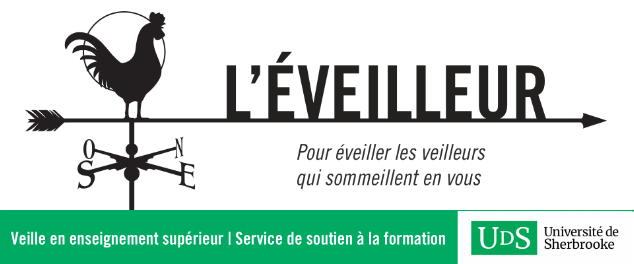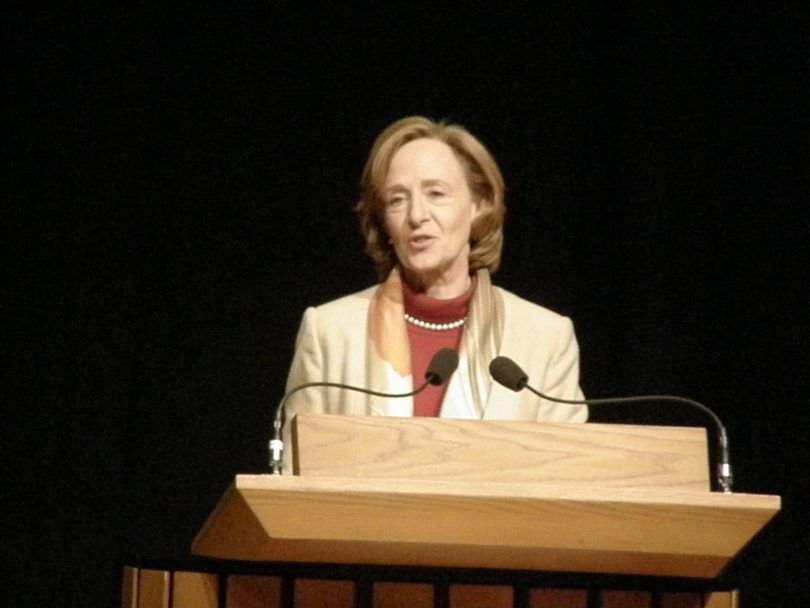Curieux de l’évolution technologique des prochaines années, je découvre cette entrevue de l’an dernier avec la professeure Susan Hockfield, neurophysiologiste qui dirigea le MIT de 2004 à 2012. Elle fut la première femme et la première chercheuse provenant des sciences de la vie à occuper ce poste.
![The Age of Living Machines: How Biology Will Build the Next Technology Revolution by [Susan Hockfield]](https://m.media-amazon.com/images/I/51NWSvOUXHL.jpg)
Son récent livre, The Age of Living Machines: How Biology Will Build the Next Technology Revolution (2019), semble un bel ouvrage de vulgarisation sur les promesses du génie biologique: « Des piles fabriquées à partir de virus. Des filtres à eau à base de protéines. Des nanoparticules qui détectent le cancer. Des membres bioniques qui lisent les commandes de l’esprit. Des semences générées par ordinateur… » (extrait du quatrième de couverture)
L’idée fondamentale est d’utiliser le génie de la nature pour résoudre nos problèmes. Pourquoi ne pouvons-nous pas utiliser le genre d’outils que la nature a utilisés pour créer les technologies dont nous avons besoin ?
Son discours ne remet jamais le développement ou le progrès en cause. Par exemple, elle rejette les inquiétudes des militants anti-OGM et ne questionne aucunement notre consommation toujours plus grande d’énergie.
Quelques extraits de cette entrevue qui m’ont frappé
À propos du développement de l’ingénierie biologique
« We didn’t understand the components of biology, however, until the molecular biology revolution in the middle of the 20th century. […] Now that we know how proteins are made, we can manipulate them for particular uses, such as drugs. It also helps us understand the cellular processes that undergird all of biology.
The biology parts list is transforming not just biomedicine. As I describe in the book, engineers are using biological parts to construct entirely new technologies. We’ll have more than 9.7 billion people on the planet later this century. To successfully manage that, we’re going to have to get better at a lot of different technologies. » [mon emphase]
À propos des énergies renouvelables
« While we love the idea of alternative energies, like solar and wind, most alternative energies rely on energy storage, meaning batteries. Current battery manufacturing is energy intensive and produces a lot of toxic byproducts. […] Angela Belcher at MIT […] has figured out how to re-engineer benign strains of viruses so that they can collect and organize battery components and build batteries at room temperature without toxic byproducts. » [mon emphase]
À propos des besoins mondiaux en eau
« We don’t currently have enough fresh water to meet the global demand, and our water purification technologies are largely the same distillation and filtration processes we’ve used for thousands of years. But it turns out that biology provides an exquisite way to filter water: a protein water channel discovered by Peter Agre at Johns Hopkins University. » [mon emphase]
À propos du développement de la demande énergétique
« One of the wonderful changes over the course of the last 50 years has been the reduction in poverty around the world. As people rise out of poverty, they naturally want a lifestyle that is more energy intensive. […] …[W]e have to figure out how to provide not just lower carbon intensive energy for a growing population, but for a growing population that we should hope will enjoy higher economic status. » [mon emphase]
À propos du resserrement de l’immigration aux États-Unis
« More than 50 percent of U.S. graduate students in engineering and science come from outside the U.S.; at MIT, more than 40 percent of our graduate students in engineering and science are international.
[…] These are people who came to the United States with the ambition of being part of our nation’s fantastic research, teaching, and product development enterprise, and we have benefited enormously from them. One would not want to put that source of our future strength at risk. » [mon emphase]
À propos de la tendances des investisseurs technologiques à vouloir des retours sur investissements à très court terme
« …[I]t’s pretty clear that as a nation we currently don’t privilege investments for any period longer than a year or two. I think we should think about how to adjust our financial incentives to encourage long-term investments. These are the investments that lead to building a manufacturing base in new industries, and there is so much good that would be returned to our communities and our nation if we were to get this right. » [mon emphase]
À propos des organismes génétiquement modifiés (OGM)
« I think it’s important for people to understand that the use of these new technologies is critical for providing enough food for the growing population on Earth. We’re feeding many more people per acre than we ever have in the history of humankind, and we simply must continue that trend because, without crop improvements, we simply can’t farm enough land to produce the food we need for the growing population. » [mon emphase]
Source: Walsh, Bryan, « Why the 21st Century Will Be Defined by Biology », Medium – OneZero, 5 mars 2019







